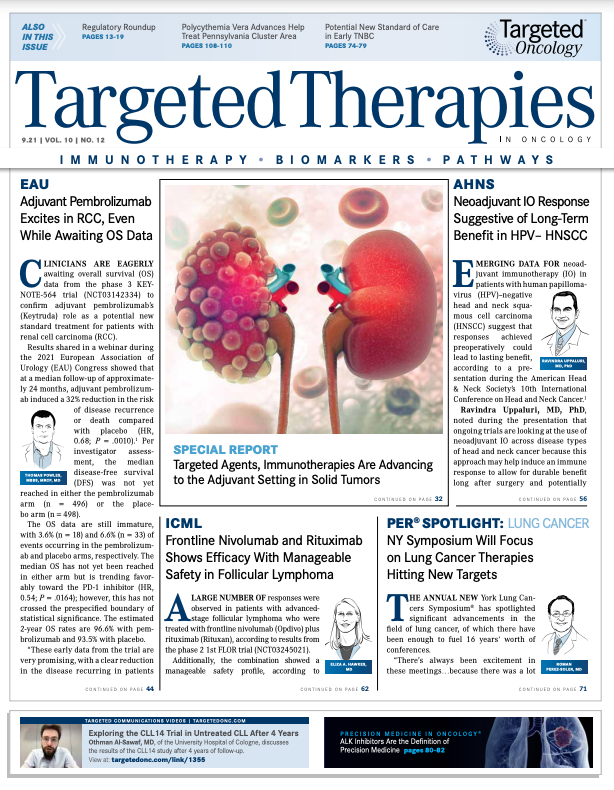Expanding Role of Survivorship Is Related to Increasingly Successful Treatment Approaches
The field is ripe for preventing the undesirable long-term effects of cancer treatment or reducing them altogether through de-intensification, according to Robert L. Ferris, MD, PhD.
Robert L. Ferris, MD, PhD

A saying frequently mentioned in oncology, often attributed to Hippocrates, is “Cure sometimes, help often, comfort always.” This sentiment has driven physician behavior for centuries and is even more true in an era of unprecedented success in cancer treatment. The issues related to the recently expanding field of survivorship exemplify what patients must endure because of the (successful) oncologic efficacy of curative therapy. These patients have come from different cancer types over the years primarily due to the identification of good prognosis disease subsets such as in breast cancer, HPV-positive head and neck cancer, and other types with a more indolent disease course. In those areas, the recognition of treatment-associated toxicity has motivated large-scale clinical trials aimed at maintaining high oncologic efficacy while de-escalating therapy in terms of less surgery, reduced radiation dose and fields, and substituting chemotherapies for less toxic agents.
Now, due to tremendous success of precision oncology and genomics-guided medicine as well as the highly successful cancer immunotherapy field, with durability of the survival tail on the Kaplan-Meier curve, survivorship has emerged in previously incurable patients with metastatic melanoma, advanced lung cancer, and renal cell carcinoma, as well as other cancer types. Thus, patients are now “afflicted” with the desirable, though no less difficult, challenges of survivorship. These include decreased function and quality of life in major organs, anxiety associated with cancer recurrence, and in some situations, death from other causes, sometimes treatment-related.
Due to these advances and the areas affected by survivorship, overlap with this emerging field, driven by sophisticated palliative care professionals has become commonplace. Palliative care itself has become a specialty measuring “outcomes” beyond providing comfort, pain management, and hospice care, as well as instructing clinicians on how to intervene and strategies to ameliorate some of these maladies associated with survivorship.
Further, oncologists and their patients may view successful oncologic therapy and improved survival outcomes differently if the quality of the life extended is not one associated with the expected quality or functional capabilities. However, this is a problem worth investigating and oncologists and palliative care experts now need to develop interventions and hopefully pre-habilitative strategies to ensure that our patients get the right treatment at the right intensity at the right time, since once the treatment-related chronic toxicities set in, they are difficult to reverse. Nonetheless, the field is bright because survivorship requires surviving one’s cancer, which is increasing encouragingly. The field is ripe for preventing the undesirable long-term effects of cancer treatment or reducing them altogether through de-intensification. Thus, survivorship is not a goal but rather a process and journey and will certainly lead to better quality of life and not just extended life spans.

Survivorship Care Promotes Evidence-Based Approaches for Quality of Life and Beyond
March 21st 2025Frank J. Penedo, PhD, explains the challenges of survivorship care for patients with cancer and how he implements programs to support patients’ emotional, physical, and practical needs.
Read More
Survivorship Care Promotes Evidence-Based Approaches for Quality of Life and Beyond
March 21st 2025Frank J. Penedo, PhD, explains the challenges of survivorship care for patients with cancer and how he implements programs to support patients’ emotional, physical, and practical needs.
Read More
2 Commerce Drive
Cranbury, NJ 08512
All rights reserved.